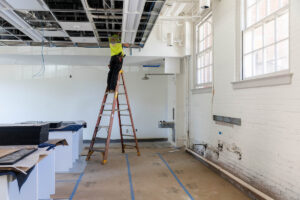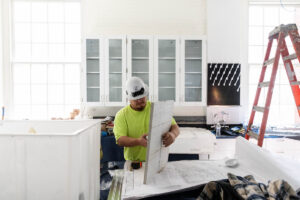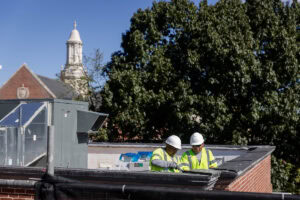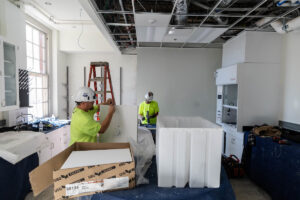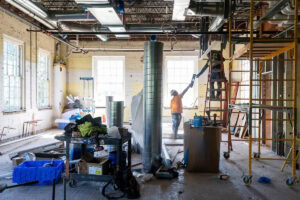Serious about science: Students enjoy newly opened lab spaces in the midst of the Martin Science renovation
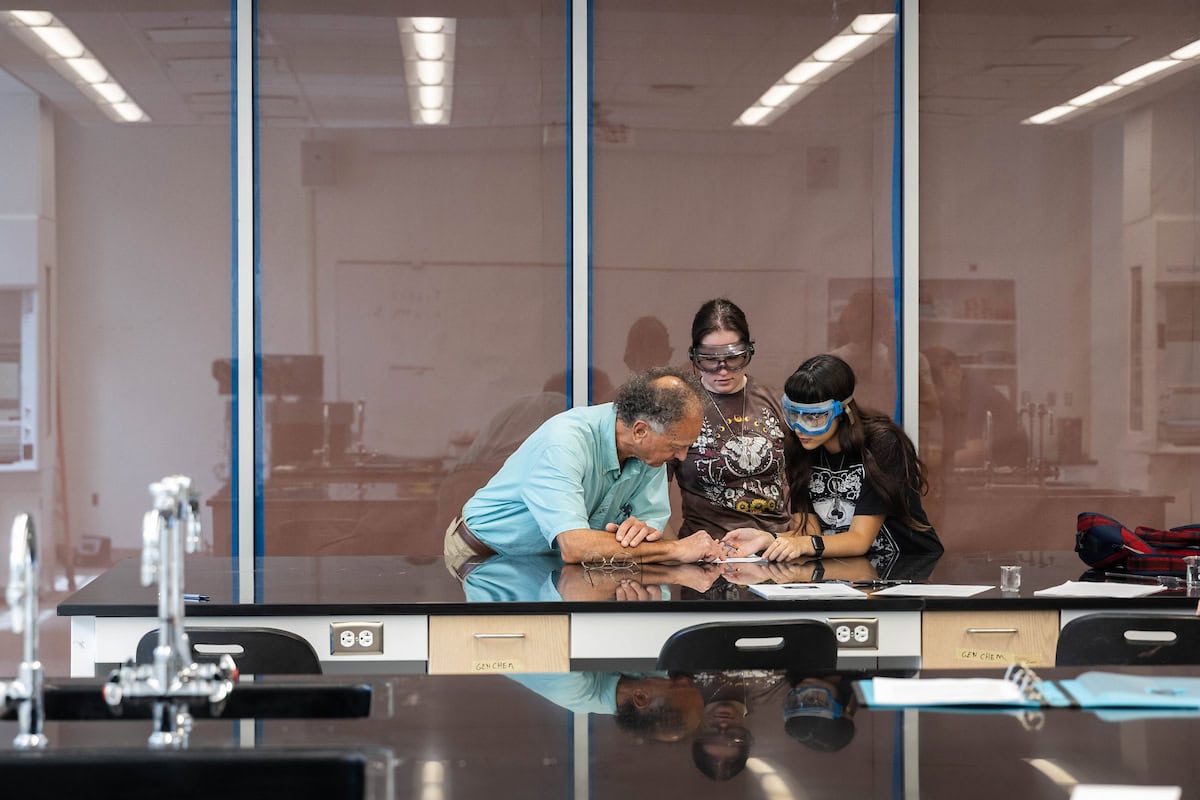
When it comes to the Martin Science Building renovation, Gregory Wietrzykowski ’26 is particularly excited about the hallways.
He admits it’s an odd choice.
“I think that it’s important for the science building to feel like a science building,” said the chemistry major, who also works as a lab assistant in Martin. “Being able to see the new labs through the hallway windows and the clean, modern aesthetics will tie the whole building together quite nicely.
“STEM is constantly advancing, and our facilities must change to reflect that,” he added. “Some of the other colleges and universities in our area have dropped or simply do not have quintessential majors in science like physics and chemistry. But Randolph College proves time and time again that we are serious about science. We are committed to our distinctive and hands-on science programs. It is rare to find the level of faculty accessibility and quality we have here, and I believe that is going to be supercharged by the updated facilities.”
Martin’s new organic chemistry lab was completed and opened this fall, offering a glimpse of the high-tech learning environment students can expect from the renovation.
“It’s really open, bright, and comfortable,” said Wietrzykowski, who took an environmental chemistry course and analysis lab there during Session One.
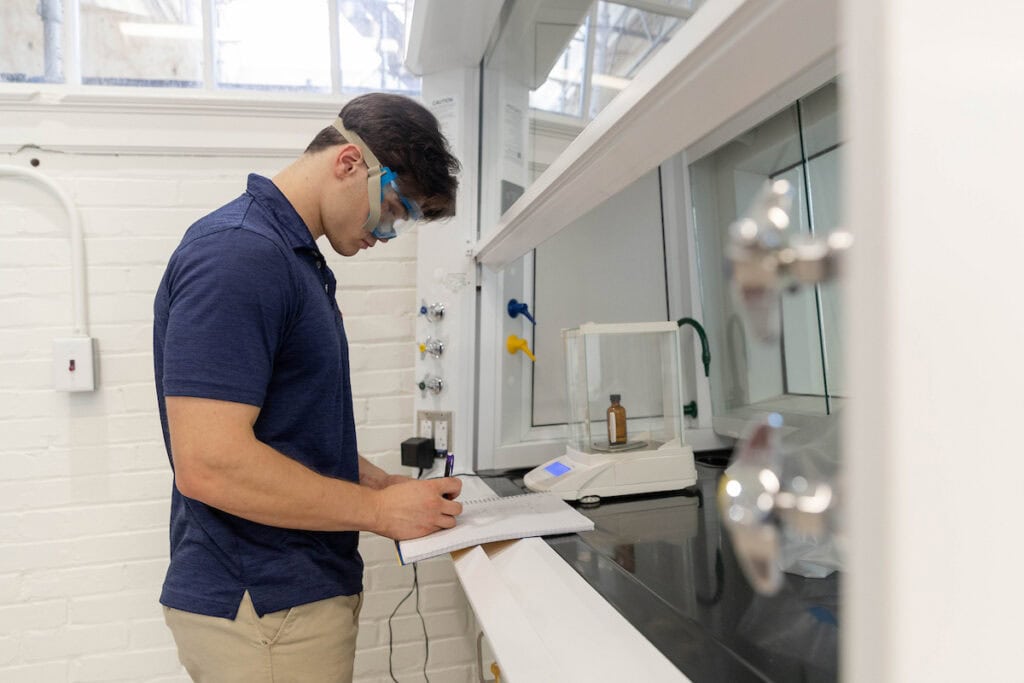
The lab’s fume hood enclosures safely contain and ventilate fumes, vapors, gasses, and dust generated when chemical processes are performed.
The lab, named in honor of Elizabeth A. Grimm ’71, a trustee emerita, includes a centralized learning area for lectures and group work surrounded by fume hoods. These enclosures safely contain and ventilate fumes, vapors, gasses, and dust generated when chemical processes are performed—and the glass walls allow everyone to keep an eye on what’s happening around the room.
“Between each lab bench and hood, there’s an alley where students work facing opposite directions of each other,” Wietrzykowski said. “Because we’re so close, it’s really easy to ask another group for help or just engage in some banter to keep spirits up. The infrastructure is simple but strikingly intelligent.”
Prior to the renovations, students attended classes in a separate lecture hall before moving into the lab.
“The setup makes it ideal for transitioning between lecture and hands-on experiments, which will be a huge benefit for courses like organic chemistry and biochemistry that often need that seamless integration,” said Ann Fabirkiewicz, Randolph’s Charles A. Dana Professor of Chemistry. “The shared space encourages more interactive and dynamic teaching, especially with the ability to pause lectures for demonstrations or to finish lab work when a lecture ends early, or vice versa.”
The lab is physically connected to an instrument room where students can analyze samples.
“That’s going to make the workflow much more efficient, allowing students to prepare and analyze their samples without leaving the lab,” Fabirkiewicz added. “And there will be a student study area right outside the organic lab. My teacher soul hopes it will be a great place to get work done before they leave the lab area, with comfy chairs and a whiteboard to sort out their questions before leaving.”
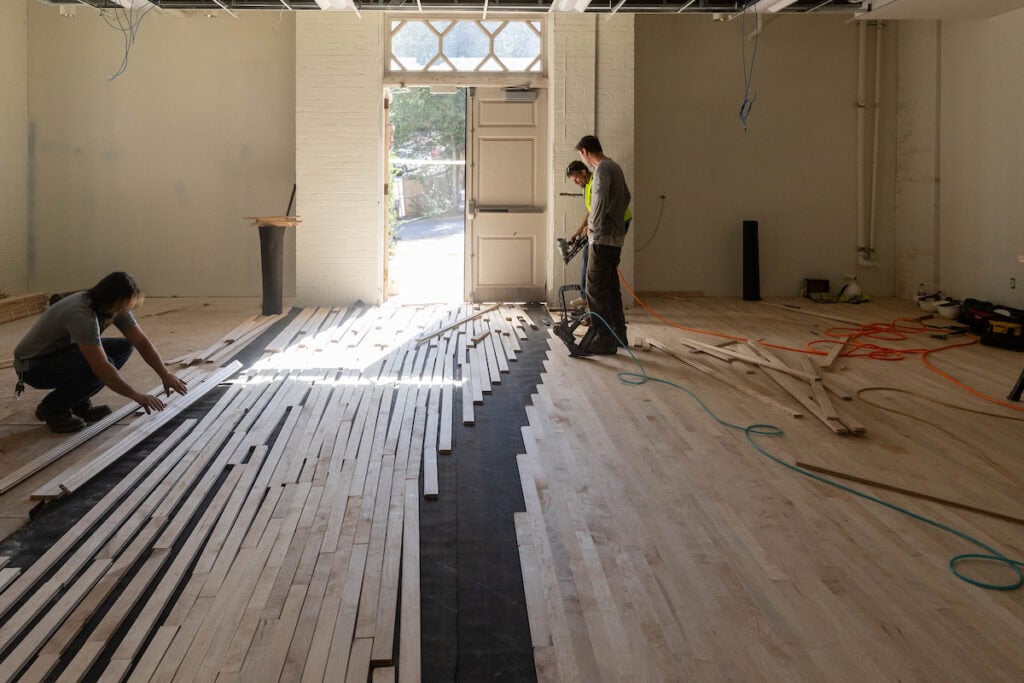
Grimm, professor emerita in the Department of Melanoma Medical Oncology Research at the University of Texas MD Anderson Cancer Center, committed $750,000 for the lab.
“As a medical researcher, I feel privileged to empower our future scientific leaders and innovators with my support of this vital project,” Grimm said recently.
Through careful planning, students were able to use parts of Martin Science Building this fall while Phase One renovation work was being completed. Critical systems such as HVAC and mechanical ventilation and energy recovery throughout the building received updates, and work is progressing on the new entry ramp and accessible entry at the rear of the building on Norfolk Avenue.
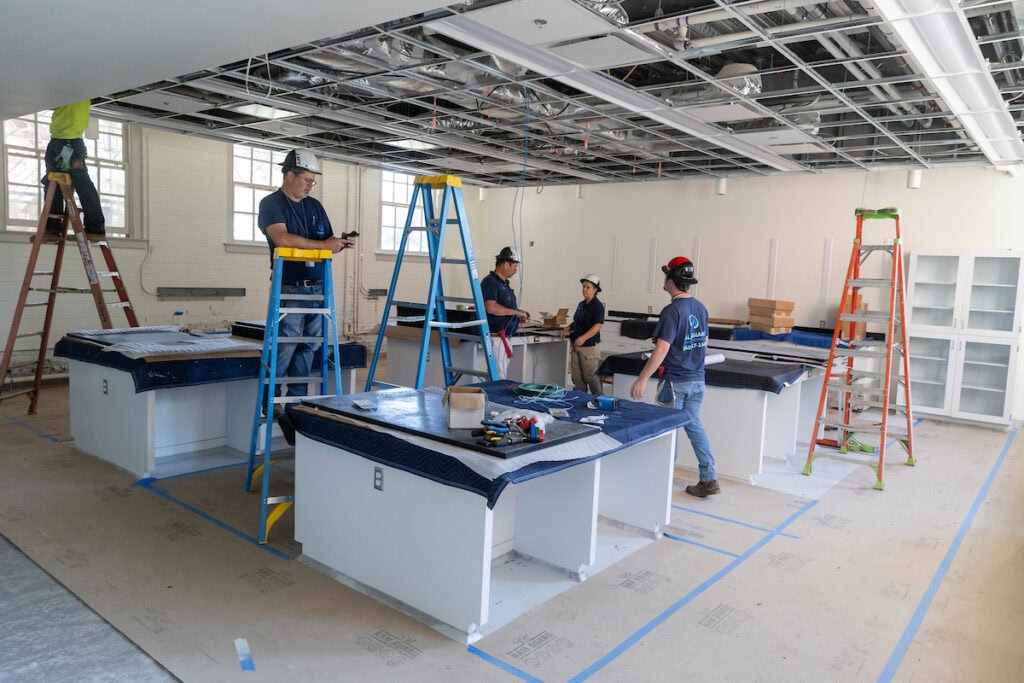
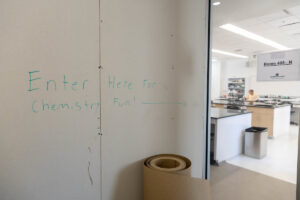
The building’s original high ceilings are being restored in order to give the spaces a more open and light atmosphere.
More chemistry labs will be finished during Phase Two of the renovation, which is scheduled for completion in early 2025.
Phase Three, estimated to begin in January, includes the completion of second- and third-floor labs and classroom space, new restroom facilities, as well as faculty offices, and the new Natural History and Archaeology Collections Project collection space.
Corridors will also be completed on the second, third, and fourth floors during the summer of 2025. The renovation will include extensive upgrades to the building’s exterior, including window repair and replacement.
Fundraising for the project also continues, with the College in the midst of a $100,000 match from an anonymous alumna trustee, that runs through the end of the calendar year.
The College has already received approximately $16.4 million in gifts and pledges toward the project goal of $23 million and estimates it will receive $3.7 million in state historic tax credits, leaving nearly $2.85 million needed to complete the campaign.
More information about the project can be found at sciencematters.randolphcollege.edu. If you or someone you know may be interested in supporting the project, please contact Randolph’s Office of Institutional Advancement at (877) 769-2443 or give@randolphcollege.edu.

